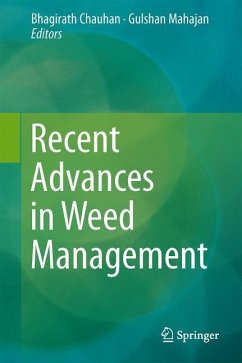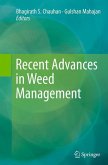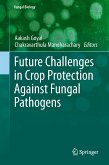This volume addresses recent developments in weed science. These developments include conservation agriculture and conservation tillage, climate change, environmental concerns about the runoff of agrochemicals, resistance of weeds and crops to herbicides, and the need for a vastly improved understanding of weed ecology and herbicide use. The book provides details on harnessing knowledge of weed ecology to improve weed management in different crops and presents information on opportunities in weed management in different crops. Current management practices are also covered, along with guidance for selecting herbicides and using them effectively.
Written by experts in the field and supplemented with instructive illustrations and tables, Recent Advances in Weed Management is an essential reference for agricultural specialists and researchers, government agents, extension specialists, and professionals throughout the agrochemical industry, as well as a foundation for advanced students taking courses in weed science.
Written by experts in the field and supplemented with instructive illustrations and tables, Recent Advances in Weed Management is an essential reference for agricultural specialists and researchers, government agents, extension specialists, and professionals throughout the agrochemical industry, as well as a foundation for advanced students taking courses in weed science.
"This book provides a comprehensive study and discussion about ecologically based weed management practices for sustainable agriculture. ... The editors have provided a roadmap regarding ecologically based weed management for sustainable agriculture. This book would be useful to the researchers, scientists, policy makers and students working on different aspects of weeds." (Rajani Srivastava, Current Science, Vol. 110 (1), January, 2016)
"The advances chronicled in this volume's 17 chapters demonstrate extensive progress in understanding how microevolutionary forces operate in changing landscapes, changes initially triggered by the introduction and then extensive use of herbicides in weed management. ... this book also heralds an opportunity for this community of scientists to work more closely together to meet this common goal. Summing Up:Recommended. Upper-division undergraduates and above." (M. K. Harris, Choice, Vol. 52 (7), March, 2015)
"The advances chronicled in this volume's 17 chapters demonstrate extensive progress in understanding how microevolutionary forces operate in changing landscapes, changes initially triggered by the introduction and then extensive use of herbicides in weed management. ... this book also heralds an opportunity for this community of scientists to work more closely together to meet this common goal. Summing Up:Recommended. Upper-division undergraduates and above." (M. K. Harris, Choice, Vol. 52 (7), March, 2015)








